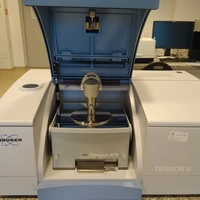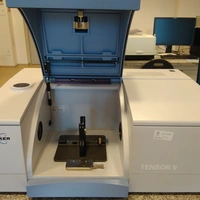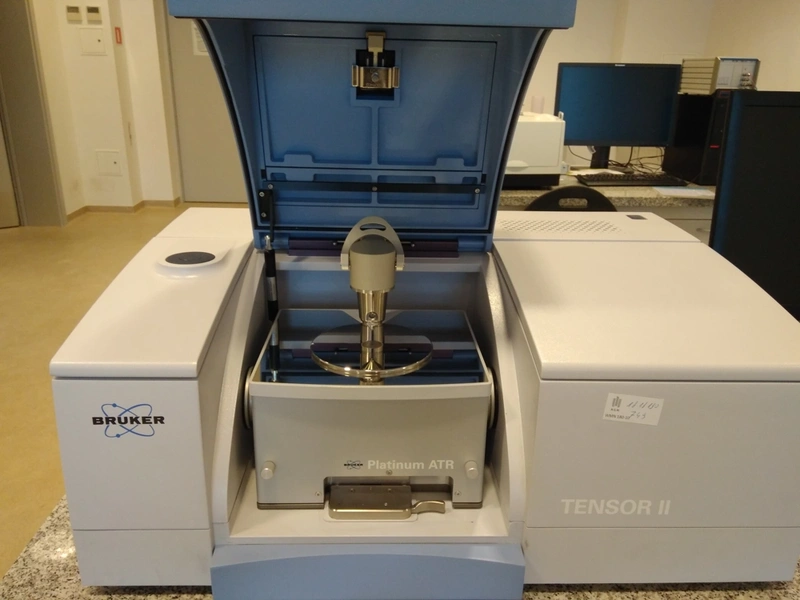Spektrometr FTIR do pomiarów widm w podczerwieni
Spektrometr FTIR Tensor II firmy Bruker wyposażony jest w:
- przystawkę do pomiarów osłabionego całkowitego odbicia ATR ( Attenuated Total Reflectance) z monolitycznym kryształem diamentowym umożliwiającą pomiar w zakresie 350-8000 cm-1, przystosowaną do pomiarów próbek ciekłych oraz ciał stałych
- przystawkę ATR z kryształem germanowym umożliwiającym pomiary w zakresie 600 – 5000 cm-1, przystosowaną do pomiarów próbek ciekłych oraz stałych; kryształ germanowy idealnie nadaje się do pomiarów widm struktur węglowych, a zwłaszcza fulerenów, nanorurek węglowych czy tlenku grafenu
- przystawkę do pomiarów transmisyjnych z kuwetą cieczową, rozbieralną z okienkami KRS5 oraz ZnSe,
- detektory: DLATGS (340-12000 cm-1) oraz MCT (420-12000 cm-1)
- komora pomiarowa wyposażona jest w dysypator umożliwiający przedmuchiwanie komory gazem obojętnym
Aparatura udostępniania na zasadach wynikających z Regulaminu Korzystania z Infrastruktury Badawczej ACMiN. (https://acmin.agh.edu.pl/home/acmin/5_Wspolpraca/Aparatura/Zasady_i_koszty_korzystania_z_infrastruktury_badawczej_ACMiN.pdf)
Spektrometr FTIR umożliwia pomiar widm w podczerwieni różnego rodzaju próbek ciekłych oraz stałych (z wyj. roztworów wodnych). Nie wymaga specjalnego przygotowania próbki. Pomiary widm w podczerwieni mogą służyć do identyfikcji badanych substancji lub analizy porównawczej materiałów.
Pomiar widm w podczerwieni techniką ATR dla próbek ciekłych i stałych w zakresie 350-8000 cm-1



Jednostka odpowiedzialna
Grupa / laboratorium / zespół
Zakład Fotofizyki i Elektrochemii Półprzewodników